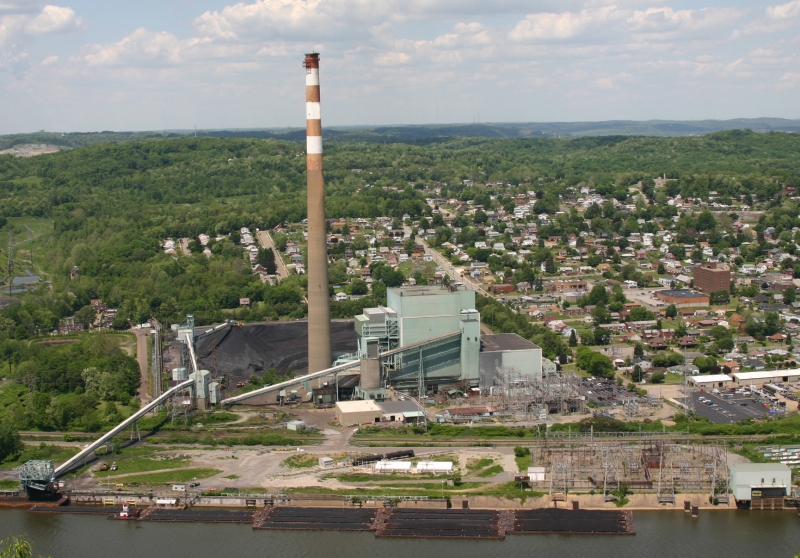Plaintiffs Bell and Luppe were named plaintiffs in a class action representing 1,500 persons residing near Genon's 750-megawatt coal-fired power plant located in a bedroom community north of Pittsburgh along the Allegheny River. The community, Springdale, also happens to be home to one of the finest old-fashioned custard stands east of the Mississippi.
 |
| Genon Power Plant Springdale, Pa. |
Plaintiffs sued under a variety of state law tort theories, alleging that ash and other contaminants from the plant were harming their property. Genon sought summary judgment, asserting that the Clean Air Act (CAA) pre-empted the state law claims.
The CAA's citizen suit provision contains a savings clause that reads:
"Nothing in this section shall restrict any right which any person (or class of persons) may have under any statute or common law to seek enforcement of any emission standard or limitation or to seek any other relief (including relief against the Administrator or a State agency)."The CAA also contains a so-called "state's rights" savings clause that protects the right of states to impose limits that are more stringent than federal law.
In a matter of first impression, the Third Circuit's analysis was guided by the Supreme Court's decision in International Paper Co. v. Ouellette, 479 U.S. 481 (1987). There, property owners on a lake sued under state common law theories for reduced property values being caused by a pollutional discharge into the lake. The Supreme Court found that the Clean Water Act's (CWA) savings clauses preserved the right of states to impose standards that were more stringent than federal law, and that those more stringent standards could be imposed either by statute or through the common law.
Finding no meaningful difference between the savings clauses under the CAA and CWA, the Third Circuit properly concluded that Ouellette controlled its decision and remanded the case to the district court for further proceedings.
The CAA's national ambient air quality standards are intended to protect public health and welfare. The secondary standards, in particular, are designed to prevent impacts to things such as buildings. As a practical matter, compliance with those standards should shield good operators from these types of common law nuisance suits. But the Third Circuit recognized that the principles of cooperative federalism embodied in the CAA provide plaintiffs another tool to redress harm where the federal regulatory framework fails to prevent harm to local residents, as alleged in this case.
In Pennsylvania, the General Assembly has made it difficult for the state to adopt regulatory standards that are more stringent than federal law. Section 4.2(b) of Pennsylvania's Air Pollution Control Act prohibits the Environmental Quality Board from adopting control measures and other requirements that are more stringent than federal law without substantial justification. As such, the Third Circuit's decision preserving common law nuisance claims has particular import for Pennsylvania residents allegedly being harmed by air pollution.

No comments:
Post a Comment